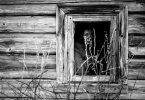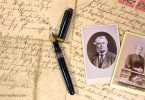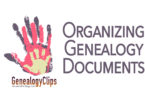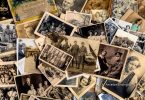Irish naming patterns are an excellent way for people to trace their Irish family lines farther back in the absence of records. It is the same way with Scottish genealogy. There are traditional ways of naming children in Scotland that can be used to help you determine the parents, and even grandparents, of your ancestors. This is especially helpful when you are researching an era, area, or ancestor that does not have a lot of official records associated with it.
While not all Scottish families followed this naming pattern or did not follow it exactly, this guide to traditional Scottish naming patterns should give you some clues as to those elusive names beyond the family brick wall, and provide you with ideas on other places to look for these ancestors.
The traditional Scottish naming pattern goes like this:
The first son — named after the paternal grandfather
The second son — named after the maternal grandfather
The third son — named after the father
The fourth son — named after the father’s father’s father
The fifth son — named after the mother’s father’s father
The sixth son — named after the father’s mother’s father
The seventh to tenth sons — named after the father’s four great-grandfathers
The eleventh to fourteenth sons — named after the mother’s four great-grandfathers
The first daughter — named after the maternal grandmother
The second daughter — named after the paternal grandmother
The third daughter — named after the mother
The fourth daughter was — named after the father’s father’s mother.
The fifth daughter — named after the mother’s mother’s mother.
The sixth daughter — named after the father’s mother’s mother.
The seventh through tenth daughters — named after the mother’s four great-grandmothers.
The eleventh through fourteenth daughters — named after the father’s four great-grandmothers
Occasionally, a child in a family died, and when this happened, some parents named the next born child of the same gender the same name that had been given to the deceased child. This was to ensure the family names were moved on to the next generation. Also, if the naming pattern indicated more than one child in a family should be given the same first name (because a lot of Scottish men and women of the olden days were named Alexander and Mary), the children after the first child who was given a certain name were given two first names at their christening, in order to distinguish them from one another.
Also, do not forget about nicknames when researching The use of nicknames was quite common in Scotland for many centuries, and the same types of nicknames tended to be used for the same given names. Sometimes, the nicknames were used on official records, rather than the given names. There are a lot of different nicknames used in old Scottish culture that are worth exploring in your genealogy, but a few of the most common ones were:
Kate or Katie for Catherine or Katherine
Jinty or Jenny for Janet
Gussie for Angus
Charlie for Charles or Charlotte
One more thing to look for when researching your ancient Scottish ancestor names is spelling variations. Some Scottish names had one or several spelling variations before spelling became standardized in the early to mid-1800s. These are some of the most common spelling variations in Scottish first names:
Alexander — Alec, Eck, Sandy, Sander, Xander
Ann/Anne/Anna — Anice, Annag, Annella, Annis, Annys
Andrew — Andro
Elizabeth — Elspeth
George — Dod
James — Hamish
Jane — Jean, Janet Jessie
John — Ian
Katherine — Catrina, Caitriona, Ceitidh
Mary — Mae, Morag






